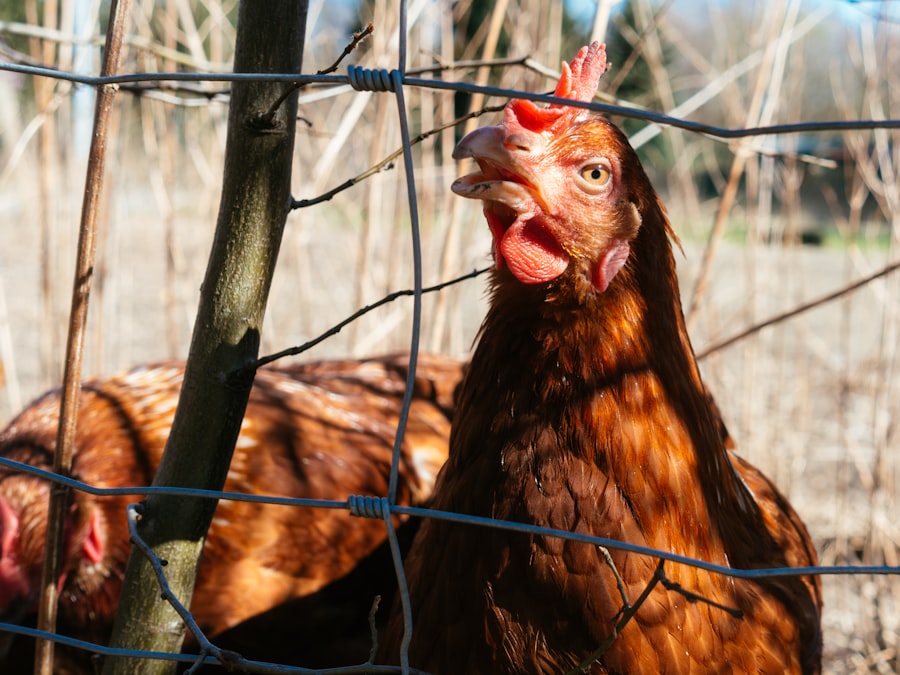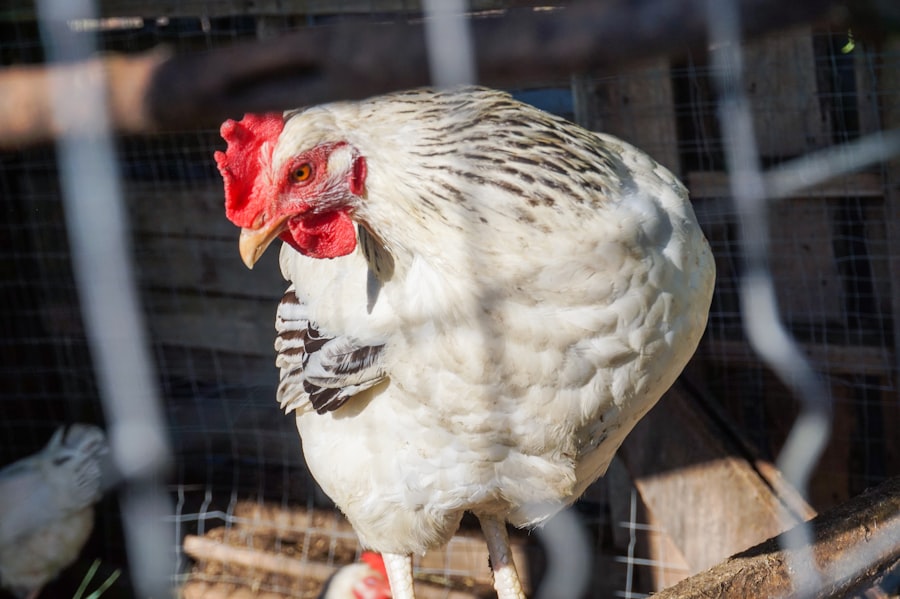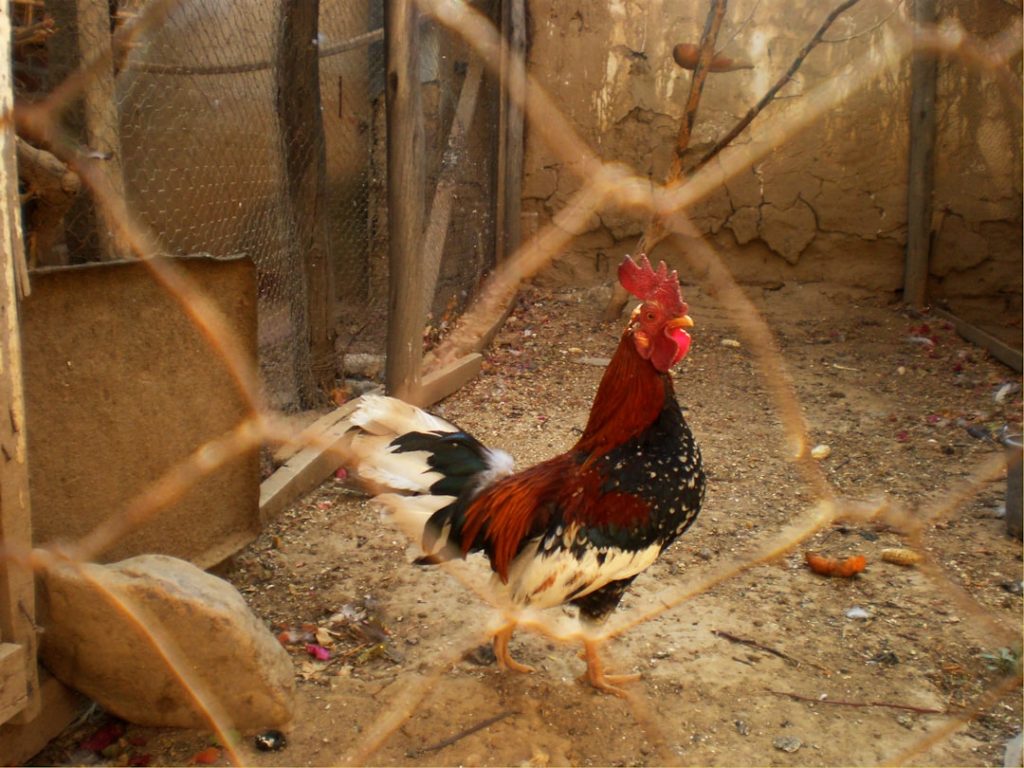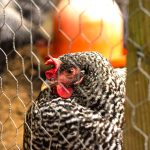Chickens are naturally curious and inquisitive creatures that enjoy exploring their surroundings. When allowed to roam freely, they often venture into gardens seeking insects, worms, and other food sources. Chickens have a natural tendency to scratch and peck at the soil, which can potentially damage plants and flower beds.
Understanding chicken behavior is crucial for effective garden management. By recognizing their natural instincts and tendencies, gardeners can implement strategies to restrict chickens from certain areas while still allowing them to forage in designated spaces. Chickens are social animals that thrive on environmental interaction.
They are creatures of habit and frequently return to familiar foraging areas. Observing their behavior patterns enables gardeners to anticipate chicken movements and take preventive measures against potential damage. Different chicken breeds may exhibit varying levels of curiosity and foraging tendencies, so understanding the specific breeds present can provide valuable insights.
By comprehending chicken behavior, gardeners can establish a balance that allows chickens to express their natural instincts while safeguarding the garden from harm.
Table of Contents
- 1 Creating physical barriers to keep chickens out of the garden
- 2 Implementing deterrents to discourage chickens from entering the garden
- 3 Providing alternative areas for chickens to roam and forage
- 4 Choosing chicken-friendly plants for the garden
- 5 Establishing a routine for monitoring and managing chicken activity in the garden
- 6 Working with natural predators to help keep chickens away from the garden
- 7 FAQs
- 7.1 What are some effective ways to keep chickens out of the vegetable garden?
- 7.2 What type of fencing is best for keeping chickens out of the vegetable garden?
- 7.3 What are some natural deterrents that can be used to keep chickens away from the vegetable garden?
- 7.4 How can physical barriers be used to keep chickens out of the vegetable garden?
- 7.5 Why is it important to provide alternative areas for chickens to roam?
Key Takeaways
- Chickens are naturally curious and will forage in the garden for insects and plants.
- Fences, netting, and raised beds can be used to physically block chickens from entering the garden.
- Scare tactics such as motion-activated sprinklers or noise makers can deter chickens from entering the garden.
- Designate a separate area for chickens to roam and forage to keep them away from the garden.
- Choose plants that are safe for chickens to eat and provide cover for them to explore.
- Regularly check for signs of chicken activity and adjust deterrents as needed.
- Encourage natural predators like hawks or dogs to help keep chickens away from the garden.
Creating physical barriers to keep chickens out of the garden
Creating a Secure Perimeter
One effective way to keep chickens out of the garden is to create physical barriers that prevent them from accessing certain areas. This can be achieved through the use of fencing, netting, or other structures that limit the chickens’ ability to enter the garden. Fencing can be installed around the perimeter of the garden to create a secure boundary that prevents chickens from gaining access.
Protecting Specific Areas and Plants
Additionally, netting can be used to cover specific areas or individual plants to protect them from being damaged by pecking or scratching. By creating physical barriers, gardeners can effectively control where the chickens are allowed to roam while still providing them with ample space to forage and explore.
Using Raised Beds and Planters
In addition to fencing and netting, other physical barriers such as raised beds or planters can be used to keep chickens out of specific areas within the garden. Raised beds elevate plants off the ground, making it more difficult for chickens to access them. Planters can also be used to contain vulnerable plants and flowers, preventing chickens from causing damage.
Creating a Balanced Environment
By strategically placing physical barriers throughout the garden, gardeners can create a protected environment for their plants while still allowing chickens to roam freely in designated areas.
Implementing deterrents to discourage chickens from entering the garden

In addition to physical barriers, deterrents can be implemented to discourage chickens from entering the garden. There are various methods that can be used to deter chickens, including visual deterrents, sound deterrents, and scent deterrents. Visual deterrents such as scarecrows or reflective tape can be effective in deterring chickens by creating a sense of unease or fear.
Sound deterrents such as wind chimes or motion-activated devices can also be used to startle chickens and discourage them from entering certain areas. Scent deterrents such as citrus peels or predator urine can create an unpleasant environment for chickens, causing them to avoid specific areas within the garden. Another effective deterrent is the use of natural predators such as dogs or cats to help keep chickens away from the garden.
The presence of a predator can create a sense of danger for chickens, causing them to avoid areas where they feel threatened. By implementing deterrents, gardeners can effectively discourage chickens from entering the garden while still allowing them to roam and forage in other parts of the property.
Providing alternative areas for chickens to roam and forage
To prevent chickens from entering the garden, it is essential to provide them with alternative areas where they can roam and forage freely. This can be achieved by designating specific spaces within the property for the chickens to explore, such as a dedicated chicken run or a fenced-in area with ample vegetation and insects for them to enjoy. By providing alternative areas for chickens to roam and forage, gardeners can redirect their natural instincts and tendencies away from the garden while still allowing them to engage in their natural behaviors.
In addition to designated areas for roaming and foraging, providing chickens with enrichment activities such as dust baths, perches, and hiding spots can help keep them occupied and content. By creating a stimulating environment for the chickens, they are less likely to seek out other areas such as the garden for entertainment. Additionally, providing access to fresh water and nutritious feed can help satisfy their basic needs and reduce their desire to explore areas where they are not welcome.
Choosing chicken-friendly plants for the garden
When planning a garden that will coexist with chickens, it is important to choose plants that are chicken-friendly and resistant to damage from pecking and scratching. Certain plants are more resilient and less appealing to chickens, making them ideal choices for a chicken-friendly garden. Some examples of chicken-friendly plants include herbs such as rosemary, thyme, and lavender, as well as ornamental grasses, succulents, and native wildflowers.
These plants are less likely to be damaged by chickens and can withstand their natural behaviors. In addition to selecting chicken-friendly plants, it is important to consider the layout and design of the garden to minimize potential damage from chickens. Creating raised beds or using containers for vulnerable plants can help protect them from being accessed by chickens.
Additionally, incorporating pathways and designated areas for chickens to roam can help direct their movement away from delicate plants and flowers. By choosing chicken-friendly plants and designing the garden with their presence in mind, gardeners can create a beautiful and thriving space that coexists harmoniously with their feathered friends.
Establishing a routine for monitoring and managing chicken activity in the garden

Monitoring Chicken Behavior
To effectively manage chicken activity in the garden, it is essential to establish a routine for monitoring their behavior and taking proactive measures to prevent damage. Regularly observing the chickens’ movements and behavior patterns can provide valuable insight into where they are likely to go and what areas may need protection. By monitoring their activity, gardeners can anticipate potential issues and take action before damage occurs.
Managing Chicken Presence
In addition to monitoring chicken activity, it is crucial to establish a routine for managing their presence in the garden. This may include implementing deterrents, adjusting physical barriers, or providing additional enrichment activities as needed.
Maintaining a Balanced Environment
By establishing a routine for managing chicken activity in the garden, gardeners can maintain a balanced environment that allows both plants and chickens to thrive. This balanced approach ensures that the garden remains a healthy and productive space for all.
Working with natural predators to help keep chickens away from the garden
Natural predators such as dogs, cats, or birds of prey can be valuable allies in keeping chickens away from the garden. The presence of a predator can create a sense of danger for chickens, causing them to avoid certain areas where they feel threatened. By working with natural predators, gardeners can leverage their instincts and behaviors to help keep chickens at bay.
In addition to natural predators, implementing sound deterrents such as wind chimes or motion-activated devices can also help keep chickens away from the garden. These deterrents create a sense of unease or fear for the chickens, discouraging them from entering certain areas within the property. In conclusion, understanding the behavior of chickens is essential for effectively managing their presence in the garden.
By creating physical barriers, implementing deterrents, providing alternative areas for roaming and foraging, choosing chicken-friendly plants, establishing a routine for monitoring and managing chicken activity, and working with natural predators, gardeners can create a harmonious balance that allows both plants and chickens to thrive in the same space. With careful planning and proactive measures, it is possible to create a beautiful and thriving garden that coexists peacefully with our feathered friends.
If you’re looking for tips on how to keep chickens from your vegetable garden, you might also be interested in learning about the importance of a well-designed chicken coop and nest box. Check out this article for helpful advice on creating a comfortable and secure living space for your feathered friends.
FAQs
What are some effective ways to keep chickens out of the vegetable garden?
Some effective ways to keep chickens out of the vegetable garden include using fencing, creating physical barriers, using natural deterrents, and providing alternative areas for the chickens to roam.
What type of fencing is best for keeping chickens out of the vegetable garden?
A sturdy wire or mesh fencing that is at least 4 feet tall and buried a few inches into the ground is best for keeping chickens out of the vegetable garden. This will prevent them from digging under or flying over the fence.
What are some natural deterrents that can be used to keep chickens away from the vegetable garden?
Natural deterrents such as citrus peels, coffee grounds, or cayenne pepper can be sprinkled around the perimeter of the vegetable garden to deter chickens. These items have strong scents or tastes that chickens typically avoid.
How can physical barriers be used to keep chickens out of the vegetable garden?
Physical barriers such as row covers, cloches, or chicken wire cages can be placed over individual plants or rows to prevent chickens from accessing the vegetables. These barriers allow sunlight and water to reach the plants while keeping the chickens at bay.
Why is it important to provide alternative areas for chickens to roam?
Providing alternative areas for chickens to roam helps to redirect their natural foraging instincts away from the vegetable garden. This can include designated free-range areas, a chicken run, or providing them with plenty of entertainment and enrichment in their coop or yard.
Meet Walter, the feathered-friend fanatic of Florida! Nestled in the sunshine state, Walter struts through life with his feathered companions, clucking his way to happiness. With a coop that’s fancier than a five-star hotel, he’s the Don Juan of the chicken world. When he’s not teaching his hens to do the cha-cha, you’ll find him in a heated debate with his prized rooster, Sir Clucks-a-Lot. Walter’s poultry passion is no yolk; he’s the sunny-side-up guy you never knew you needed in your flock of friends!







